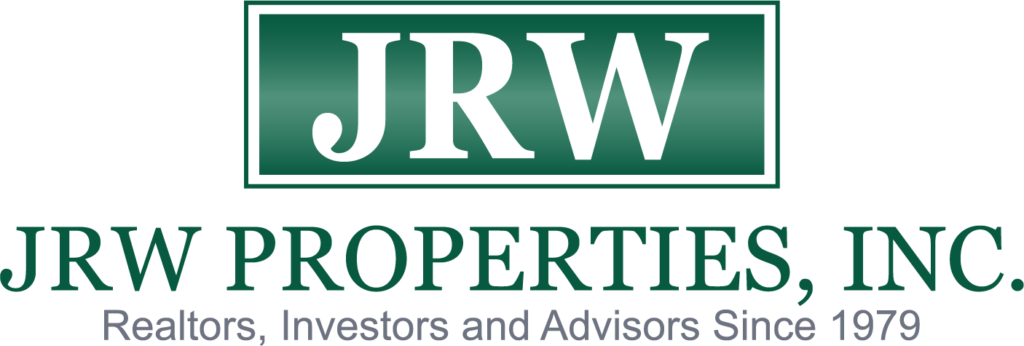We are here to help answer any questions you may have about our broker services. Our team of experienced real estate professionals are dedicated to providing the highest quality of service to our clients. We understand that for first-time buyers and sellers, the entire process can seem overwhelming. That’s why we are here to provide you with the information and guidance you need to make an informed decision.
From the start of the process to the closing and beyond, our goal is to provide you with the best possible service. No matter what your needs may be, our team is here to help you every step of the way.
For The Seller
First impressions are critical when it comes to selling a home. First, you should depersonalize the space to create a neutral design aesthetic. Bright paint and wallpaper should be toned down and family photos should be packed away. It is also important to declutter and remove any unnecessary appliances, furniture and toys. Before a house showing, the kitchen counters should be clear and common areas and bedrooms should be tidy. Let light in by opening curtains or shades.
Touch up paint, replace or repair kitchen appliances, update bathroom fixtures, and fix any lighting fixtures. Additionally, make sure the roof doesn’t have any leaks or missing shingles before listing the house.
To make the house more inviting and appealing to buyers, touch up the exterior. Clean the gutters, wash the siding, mow the lawn, remove weeds, and prune bushes. If the house has a fence, make sure it is in good condition by inspecting it for any missing panels or peeling paint. Clear the walkway and consider adding planters or a new welcome mat.
Finally, get rid of any odors, such as pet smells, musty odors, any odors from the sink or garbage disposal, and the smell of rotten eggs or sulfur. Pets should be crated, out of the way, or kept away during a viewing. Use an air freshener, wash or replace pet beds and toys, and keep up with a cleaning schedule to reduce pet hair.
A pre-listing inspection can save sellers and buyers a lot of hassle. Knowing in advance about potential issues with the property means that both the seller and the buyer can factor this into the price. Having the inspection done ahead of time can help avoid the risk of the sales contract falling through due to unexpected problems, as the buyer can get a clear picture of the home’s condition, and the seller and agent can agree upon an appropriate asking price. This ensures a smooth and successful sale and prevents the need for the owner to put the home back on the market if the sale falls through.
While the average number of days a house sits on the market is 22 days, it can vary depending on a variety of conditions. These include: market conditions, demand, pricing, state of the home, and its location. In a buyer’s market, there will be more supply than demand, meaning it will take longer to sell. On the other hand, a seller’s market, in which demand exceeds supply, can result in homes selling quickly and sellers commanding higher asking prices. Furthermore, if the house has been on the market for longer than other properties, buyers may start to question what is wrong with the property and opt for something else. Additionally, if the house is priced too high or needs extensive repairs, buyers may not be interested, causing the house to sit on the market for longer. Finally, if the house is located in a desirable area, it could sell faster; however, if it’s in an undesirable neighborhood, it could take longer.
There are several ways to determine the correct asking price for your home. There are numerous online tools that offer quick home value estimates. Each one uses a different methodology to generate an estimate, so it’s important to be aware that your estimate may vary. County auditors also assess the value of residential properties for property tax purposes, which is public and searchable online. The Federal Housing Finance Agency’s House Price Index calculator analyzes historical mortgage data to provide an estimate of home values based on the rate of appreciation in the area over a given period. Mortgage lenders hire appraisers to confirm the value of a house before approving a loan, but this isn’t always necessary for sellers. Appraisers take into account the characteristics of the property and comps. Finally, you can ask your real estate agent. Real estate agents can provide a comparative market analyses to sellers, which involves data gathering on recent sales and an in-depth insight on the neighborhood and any special characteristics of the property.
Fair market value (FMV) is the price at which a willing buyer and seller agree to buy and sell a property. It is typically determined by looking at comparable properties in the area and taking into account factors such as size and condition. An appraisal can provide a fairly accurate estimate of FMV. However, the final FMV will ultimately be determined by what a buyer is willing to pay for a given property.
The assessed value is a measurement used to calculate property taxes, and is often used by realtors to market a home. The assessor typically takes the FMV into account but is not the same as a traditional property appraisal. It is important to keep in mind that the assessed value and tax rate can change over time and that getting the best mortgage rate will affect monthly mortgage expenses for the life of the loan.
Real estate agent commission is typically split evenly between the buyer’s agent and the seller’s agent, with each receiving 5%–6% of the home’s sale price. Typically, the buyer does not have to pay commission, though they may still have to cover closing costs. As the seller, you are responsible for paying commission to both agents when your home sale closes. This can vary by agent and location, so it’s important to do your research when selecting real estate agents.
For The Buyer
Buying a home is an exciting and complex process, requiring careful preparation and research. To ensure you are well- prepared for your home purchase, it is important to understand the steps that must be taken before you can officially call it your own.
The first step is to check your credit score. This will give you an idea of what kind of loan terms you may qualify for. The next step is to determine how much you can realistically afford. This will help in narrowing the search for a property. You will then need to choose a lender and get preapproved for a mortgage. This will allow you to have a clear budget to shop within. Finding a real estate agent can also be a great help in finding the right property.
Once you have found the right home, you will need to make an offer. Once it is accepted, you will need to obtain a home inspection and home appraisal. This will determine the market value of the home and any necessary repairs. Following this, you will need to purchase homeowners insurance to protect your investment. Next, you can do a final walkthrough to make sure the property is in the condition you expect it to be. Lastly, you can close on your new home and receive the keys.
Timing is crucial when it comes to real estate, and deciding whether to sell your home before buying a new one can be a difficult decision. The market conditions will have a significant impact on your choice, as a buyer’s market will present different advantages than a seller’s market.
In a buyer’s market, inventory tends to exceed demand, resulting in homes spending more days listed and the pressure for the seller to lower their price or offer concessions to attract potential buyers. If you find yourself in this market, it may be best to list your home first, as that will provide you with time to look for a new house.
On the other hand, a seller’s market is characterized by low inventory and high demand, often with stiff competition. You may be able to sell your home quickly, with few to no contingencies, and possibly at a higher price, but you may find it harder to find a new home. If you wish to avoid having to move twice, you may want to look for a new house before listing your old one.
It’s best to aim to coordinate the purchase of your new house with the sale of your old one. Using the same agent for both transactions can help streamline communication, facilitate the coordination of dates, and possibly result in a discount on the commission.
When buying a property in Florida, it is important to prioritize a thorough home inspection. While disclosure of any existing problems is a legal requirement, there may be issues that the seller may not be aware of or intentionally fails to disclose. A professional inspector will be able to identify structural, cosmetic, and any code issues that may be present with the property. This will provide a better understanding of the true value of the home and ensure you are making the right decision.
Earnest money is a deposit made by homebuyers when purchasing a property, showing the seller that their offer is legitimate. It typically amounts to 1-2% of the sale price and is paid to a third-party such as a legal firm, real estate broker, or title company. In a competitive market, the deposit can be as high as 10%.
The purpose of the earnest money is to take the property off the market, allowing the buyer time to conduct a title search, appraisal, and financing. It also serves to demonstrate the buyer’s serious intent.
The earnest money is typically returned to the buyer at closing. However, it can also be withheld if the buyer breaches the contract, waives their contingencies, or ignores the timelines outlined in the purchase agreement. Work with an experienced real estate agent to determine a suitable amount for the deposit and ensure that your earnest money is safe.
For prospective homebuyers considering a major purchase, it’s important to keep in mind the financial risks associated with backing out of a deal. If a contract is signed and a deposit is made, the buyer may risk losing that deposit if they try to get out of the contract without meeting the terms. Fortunately, it is possible to protect yourself by including contingencies in the deal such as those related to home inspection, appraisal, and financing.
The reasons for walking away from a deal vary, but some common factors include unsatisfactory property inspections, unaffordable increases in house payments due to material shortages, and the likelihood of a better deal on the same or a different property in the near future. It’s important for prospective buyers to understand the current market conditions, their financial situation, and the terms of their purchase agreement so they can make an informed decision.
Conventional mortgages are one of the most common types of mortgage loans and are a good option for many borrowers. They have stricter regulations on credit scores and DTI ratios than other types of loans, and require a minimum credit score of 620 to qualify. With a down payment of at least 20%, you can avoid PMI (private mortgage insurance). However, if you put down less than 20%, you will need to pay PMI.
Pros of conventional mortgages include lower borrowing costs in the long run and the ability to put down as little as 3%; cons include the need to pay PMI if the down payment is less than 20%. Home buyers who might benefit from conventional mortgages are those with stable incomes and good credit.
Fixed-rate mortgages have the same interest rate and principal/interest payments throughout the duration of the loan, offering a predictable payment each month. These are a good choice if you are looking to purchase or refinance your forever home. However, if interest rates are high, you may end up paying more in interest over time.
Adjustable-rate mortgages are 30-year loans with an introductory period of fixed interest. The interest rate changes depending on market rates after the introductory period ends. ARMs can be beneficial if you plan to buy a starter home before moving to a forever home, as well as if you plan on paying extra toward your loan early on. Cons include the possibility of dramatically increasing monthly payments if the rate increases.
Government-backed loans are insured by government agencies and include FHA, VA and USDA loans. These can be a good choice if you have trouble qualifying for a conventional loan, as they have lower mortgage insurance requirements and can allow you to buy a home with no money down.
Lastly, jumbo loans are worth more than conforming loan standards and are usually similar to conforming loan interest rates. You usually need a higher credit score and lower DTI ratio to qualify, and you’ll need to make a large down payment, typically between 10 – 20%. Those who might benefit from jumbo loans are those who need a loan larger than $726,200 for a high-end home, have a good credit score and low DTI.
When you purchase a home, your mortgage lender will create an escrow account to collect and hold your payments for taxes and insurance. After the closing process has been completed, your mortgage servicer will take a percentage of your monthly mortgage payment and deposit it into your escrow account. This money will stay in the escrow account until your tax and insurance payments are due, at which point the funds will be used to pay these bills. This process ensures that your taxes and insurance payments are made on time each year without you needing to worry about it.



